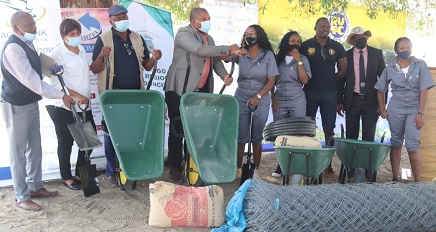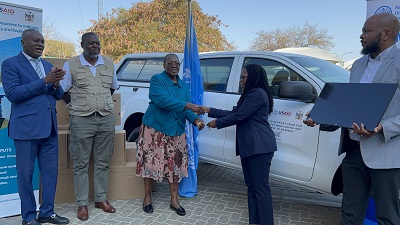
Siya Community Holticuture Project to be revived

Agribank recently partnered with other stakeholders through the Watyako Foundation, to hand over a donation valued at N$125,000 to the Siya Community Horticulture project.
The sponsorship is assisted to revive the community garden in the impoverished Kapako Constituency of the Kavango-West region and will benefit women, youth, and differently abled-bodied persons in the community.
The Bank sponsored N$ 20,000 towards this partnership, while other partners contributed N$55,000 worth of equipment and materials that were handed over to the project, as well as N$70,000 worth of training offered by the Rundu Vocational Training Centre. The training will cover all aspects of horticulture, monitoring, and project evaluation and implementation.
Speaking at the sponsorship handing over ceremony, Agribank’s Manager for Marketing and Communication Rino Muranda accentuated the Bank’s commitment to transforming the agricultural sector, through its affordable and sustainable innovative financial solutions, hence the Bank designed schemes such as the Women and Youth Loan Scheme, that furthers the objectives of financial inclusion, citing that, agriculture is the backbone of Namibia’s economy and source of sustenance for many livelihoods in the country.
On her part, the Founder and Chairlady for the Watyako Foundation Salmi Mvula noted that the Siya Community horticulture project and its needs were identified through the Directorate of Rural Services in the region, and this prompted the foundation to reach out to potential partners and collaborators such as Agribank, to come on board and support this noble food security initiative, that seeks to alleviate poverty and hunger as well as to address unemployment among women, youth and people living with disability in the Siya village.
She thus appreciated all the sponsors, for believing in the wishes and aspirations of their foundation. “I, therefore, would like to call upon the private sector, NGOs, Civil society, and individuals to continue investing in sustainable development projects such as this, in the needy communities of our society,” she concluded.











































